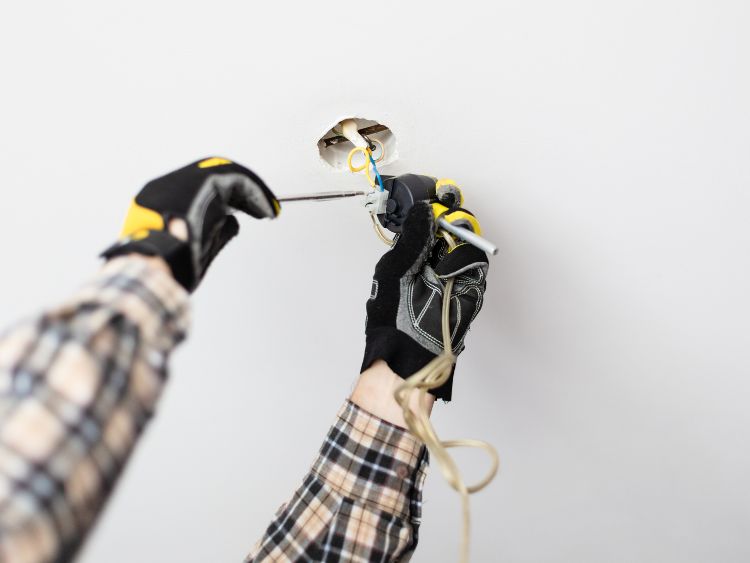In today’s fast-paced world, where vehicles have become more than just a mode of transport, understanding the ins and outs of vehicle electrical repair is paramount. This intricate domain, essential for the smooth operation of your car, involves dealing with the electrical systems that power everything from your headlights to the engine itself. Let’s dive deep into the electrifying world of vehicle electrical repair, ensuring you’re equipped with the knowledge to keep your ride running smoothly.
Understanding the Basics of Vehicle Electrical Systems
Before we roll up our sleeves and get down to the nuts and bolts of vehicle electrical repair, let’s take a moment to understand the basics. The electrical system of a vehicle is a complex network that powers the engine, lights, entertainment systems, and more. It’s like the nervous system of your car, transmitting power and information to ensure everything operates harmoniously.
Key Components:
- Battery: The heart of the electrical system, providing the initial power to start your car.
- Alternator: Recharges the battery while your car is running, ensuring a continuous supply of power.
- Starter: Draws power from the battery to start the engine.
- Fuses and Relays: Protect your car’s electrical circuits, preventing overloads and potential damage.
Troubleshooting Common Electrical Issues
Electrical problems can range from the mildly annoying, like a flickering headlight, to those that can leave you stranded by the roadside. Knowing how to pinpoint and fix these issues can save you time and money.
Here are some common electrical problems:
- Dimming or flickering lights
- Dead battery
- Faulty alternator
- Blown fuses
- Erratic electronic dashboard display
How to troubleshoot:
- Check the battery: Ensure it’s properly charged and clean the terminals.
- Inspect the alternator: A faulty alternator can lead to a dead battery.
- Examine the fuses: Look for any blown fuses and replace them if necessary.
- Consult the vehicle’s manual: Sometimes, the solution is as simple as resetting a system.
DIY Tips for Vehicle Electrical Repair
Rolling up your sleeves and tackling vehicle electrical repairs can be daunting, but with the right tips, you can handle many common issues. Here’s how you can address some of these problems:
- Replacing a Battery: Ensure you disconnect the negative terminal first to avoid any electrical shorts.
- Changing a Headlight: Purchase the correct bulb size, and never touch the glass part of the new bulb with your fingers.
- Installing New Fuses: Always match the amperage of the blown fuse to avoid damaging the circuit.
When to Call a Professional
While DIY can save you money, there are times when it’s best to call in a professional. Complex issues, like wiring faults or electronic system failures, require specialized knowledge and tools. If you’re ever in doubt, it’s better to err on the side of caution and consult an expert. They can diagnose and fix the problem, ensuring your vehicle’s electrical system is in top condition.
FAQs on Vehicle Electrical Repair
Q: How often should I check my vehicle’s electrical system? A: It’s a good idea to have it checked annually as part of your vehicle’s regular maintenance schedule.
Q: Can a faulty electrical system drain my battery? A: Yes, issues like parasitic drains can cause your battery to die prematurely.
Q: Are there any signs of a failing alternator? A: Warning signs include dim lights, a dead battery, and sometimes a squealing sound from the engine bay.
Q: Is it safe to replace electrical components myself? A: For simple tasks like changing fuses or bulbs, yes. But for more complex issues, it’s best to consult a professional.
Summary
Vehicle electrical repair doesn’t have to be a daunting task. With a basic understanding of your car’s electrical system, some troubleshooting skills, and the right approach, you can handle many common issues yourself. Remember, it’s always best to consult a professional for more complex problems. Keeping your vehicle’s electrical system in check ensures a smooth ride, enhanced safety, and the longevity of your car.
As we’ve navigated through the electrifying world of vehicle electrical repair, we’ve armed ourselves with knowledge and tips to tackle common issues, recognize when it’s time to call in the experts, and understand the importance of regular maintenance. Here’s to keeping our rides running smoothly with a spark of confidence!

